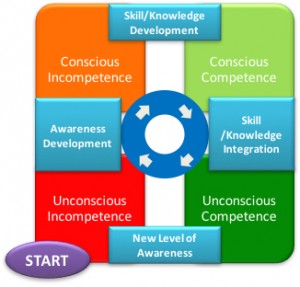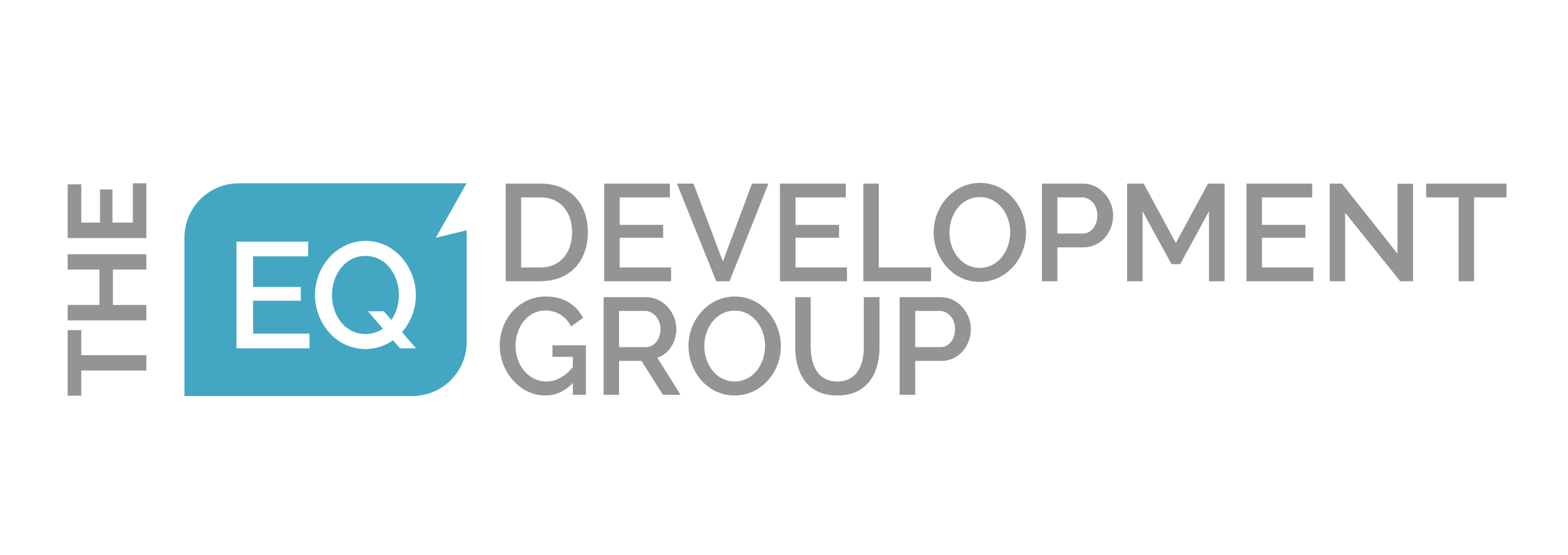Emotional Intelligence Training
When people consider emotional intelligence training or coaching, one of the questions I am frequently asked is ‘Can you train people to increase their emotional intelligence?’ The question itself seems straightforward, but in truth the answer is no – you can’t train people to increase their emotional intelligence. What you can do as a coach or instructor is raise people’s awareness and then help to identify concrete strategies through which they can apply their newly acquired knowledge to everyday situations.
While an experienced instructor or coach can take responsibility for raising awareness and provide support for identifying concrete strategies, only the learner or coachee can apply the skills. When they do this, over and again, for a sustained period of time, the learning has a chance to embed itself and become a part of the person’s natural behaviour. Through this cycle, people move from not knowing what they don’t know (unconscious incompetence) through to behaviours becoming natural and automatic (unconscious competence).
This transition from one state to another is not direct, and requires that the learner or coachee pass through two other stages on the way – conscious incompetence (knowing what they don’t know), and conscious competence (knowing what they know).
 I use this model to help explain the learning process in both my workshops and coaching relationships. (NOTE: I am not able to find the original source for the model, so if you are aware of the origin, please let me know so I can attribute appropriately).
I use this model to help explain the learning process in both my workshops and coaching relationships. (NOTE: I am not able to find the original source for the model, so if you are aware of the origin, please let me know so I can attribute appropriately).
As indicated by the cyclical nature of the model, this is a continuous process of recognizing and realizing new levels of awareness and competence. It’s one of the reason’s that coaching and mentoring are such great processes for increasing emotional effectiveness. It allows the cycle of increasing awareness, defining strategies, and applying learning to be evaluated and repeated over and again throughout the relationship.
Those who have been most successful and becoming more emotionally effective are those that practice their skills constantly. Like most human mental and physical activity, if you want to get really good at something you have to practice it consciously every day until you become unconsciously competent. Once at that place, you will discover a new level of awareness (unconscious incompetence) from which to start building once again.
If it sounds like hard work, it is. But having seen individuals, relationships, and workplaces transformed by more emotionally effective leaders, I can tell you it is work worth doing.


